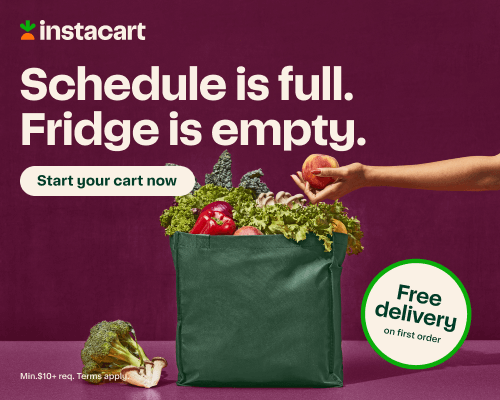Planning & Prep
Are Plastic Grocery Bags Recyclable?

When you get home after doing a grocery store run, and you put all your grocery items away, you may be left with lots of plastic grocery bags. You already know plastic bags are bad for the environment, so what do you do with them?
Standard single-use plastic grocery bags are made up of soft plastic, which isn’t designed to be durable or long-lasting. You might be able to reuse them a couple more times, although realistically, they won’t hold up.
When plastic bags are of no use to you, you may start thinking about how to discard them responsibly. Are these plastic grocery bags recyclable? Can these plastic bags be disposed of in the curbside bins to undergo recycling?
This helpful guide will go over whether plastic grocery bags are recyclable.
Are plastic grocery bags recyclable?
The one-word answer to this frequently asked question is NO. You cannot recycle plastic grocery bags in your curbside recycling. That said, you may be able to recycle your bags if you take them to a store drop-off location that specifically handles plastic.
When you aren’t sure if something is recyclable or not, you might find it’s easier to throw single-use plastic grocery bags into the recycle bin anyway—in the hope that someone will find a way to recycle it. This is called wish-cycling, and unfortunately, this is only harmful to the recycling process.
If these plastic grocery bags are placed in the curbside recycling and end up at the recycling facility, they will get tangled in the recycling equipment—due to their lightweight and thin material—and create safety hazards for recycling center workers. These soft plastics will ultimately create a lot of disruption in the recycling process and waste time and resources. And then, they’ll just end up in landfills anyway.
So, it’s important to always be mindful while disposing of these plastic grocery bags. Your best bet is to save up your bags and find a store drop-off location when you have enough to recycle.
Why recycle plastic bags?
There are many reasons to recycle plastic bags:
- Plastic bags are the biggest contributor to marine debris and are harmful to marine life.
- The material that makes up plastic bags doesn’t biodegrade, so it remains in landfills for hundreds of years.
- After recycling, plastics bags will be converted into other useful items such as outdoor garden furniture, park benches, and even fencing.
The best thing you can do to keep plastic grocery bags out of landfills is to reduce the amount of single-use plastics you use in your daily life. Either reuse them multiple times or remember to use reusable bags at the grocery store.
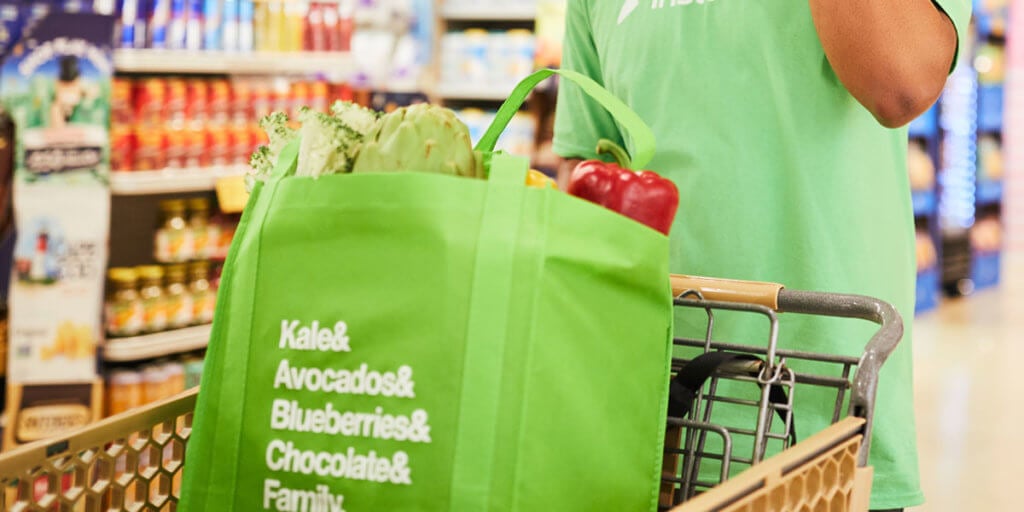
Other ways to repurpose plastic grocery bags
Apart from reusing plastic bags when shopping for groceries, you can use them in your home for other household purposes.
There are many ways in which you can utilize these plastic bags around your house, including:
- Using them as bathroom trash bag liners
- Using them to collect the used kitty litter or pick up your dog’s “lawn gifts”
- Using them to secure extra smelly food waste items in the trash
Once the plastic grocery bags in your house are now completely reused and have no further use, then you can drop them in the regular garbage bin. However, another much more environmentally friendly option—and to prevent those harmful plastics from ever reaching landfills—is to take all of your plastic grocery bags to a store that has a soft plastics recycling drop-off point.
Which retailers take back plastic bags?
Look for the How2Recycle Store Drop-Off label on your grocery items, which indicates they can be recycled at designated drop-offs. To find out your nearest U.S. retailer that accepts plastic grocery bags back, check for a recycling drop-off location.
Most large chain retailers such as Target, Walmart, and other grocers supply collection bins where you can drop off your plastic grocery bags and other soft plastics. Look for them at the store entrances, and make sure your soft plastics are clean and dry before dropping them off. This doesn’t mean you need to wash every single plastic item, but what it does mean is:
- No crumbs—shake them out
- No food residue—rinse it out
- No liquid—if damp, let any liquid evaporate before placing it in the collection bin
What plastics are recyclable at store drop-off locations?
Only certain soft, flexible plastics can be recycled through store drop-off locations. On flexible plastics made of high-density polyethylene (HDPE) and low-density polyethylene (LDPE), look for the How2Recycle Store Drop-Off label. These items include:
- Plastic grocery bags
- Wrap from dry cleaning
- Plastic mailers
- Bread and bakery bags
- Fresh produce bags
- Food storage or zipper sandwich bags
- Plastic cereal box liners
- Shipping wrap packaging (most stretchy plastics that you find wrapped around water bottles, paper towels, or baby products—make sure you peel off any paper labels
- Packing materials like plastic pouches and air pillows
What recycle number are plastic grocery bags?
The plastic grocery bags that are made up of HDPE are categorized as a number 2 plastic. The plastic grocery bags that are made up of LDPE are categorized as a number 4 plastic.
Some curbside recycling communities use resin identification codes, which can sometimes be mistaken as recycling numbers. So, even if your community program says they accept number 2 and number 4 plastics in curbside bins, although it’s confusing, they’re actually referencing rigid plastics like bottles and jugs. So, don’t try to recycle your soft plastics in curbside bins.
If you see the How2Recycle Store Drop-Off label on your food package, you can rest assured this item can be recycled through store-drop off.
Reduce global plastic waste by recycling your plastic grocery bags
Recycling plastic is important for keeping our environment safe and healthy. We all need to contribute to reducing single-use plastics, and in turn, reducing our plastic waste.
When you order your groceries through Instacart, make sure you reuse your plastic grocery bags in your house and then correctly recycle them to help protect our environment.
Most Recent in Planning & Prep

Planning & Prep
37 Care Package Ideas: From “Get Well” to “Just Because”
It’s always nice to show some extra appreciation for your loved ones. Whether you want to support a sick friend or a neighbor who had their first child, a care package is the perfect way…
Jan 30, 2025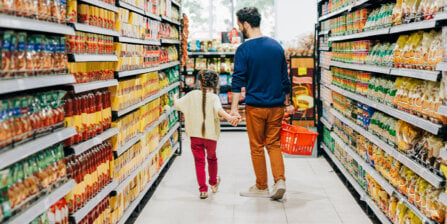
Planning & Prep
Average Grocery Cost per Month: The 2025 Breakdown
The average grocery cost per month, per person, in the United States is roughly $350 for adults between 19 and 50 years old in a four-person household. This estimation depends on multiple factors, such as…
Dec 23, 2024
Planning & Prep
33 Shocking Global and National Food Waste Statistics (2025)
Did you know nearly 30% of the food produced globally is never eaten? This staggering food waste statistic highlights the alarming issue of uneaten food — a problem with environmental, economic and social consequences. Food…
Dec 23, 2024

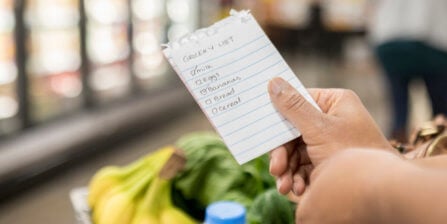 17 Grocery List Categories to Make Shopping Easy
17 Grocery List Categories to Make Shopping Easy 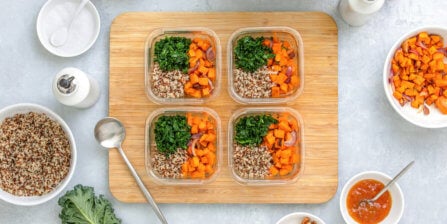 How to Meal Plan: Step-by-Step Guide to Meal Planning
How to Meal Plan: Step-by-Step Guide to Meal Planning 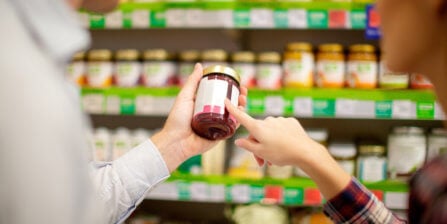 How To Read Food Labels: Guide to Nutrition Labels
How To Read Food Labels: Guide to Nutrition Labels 

